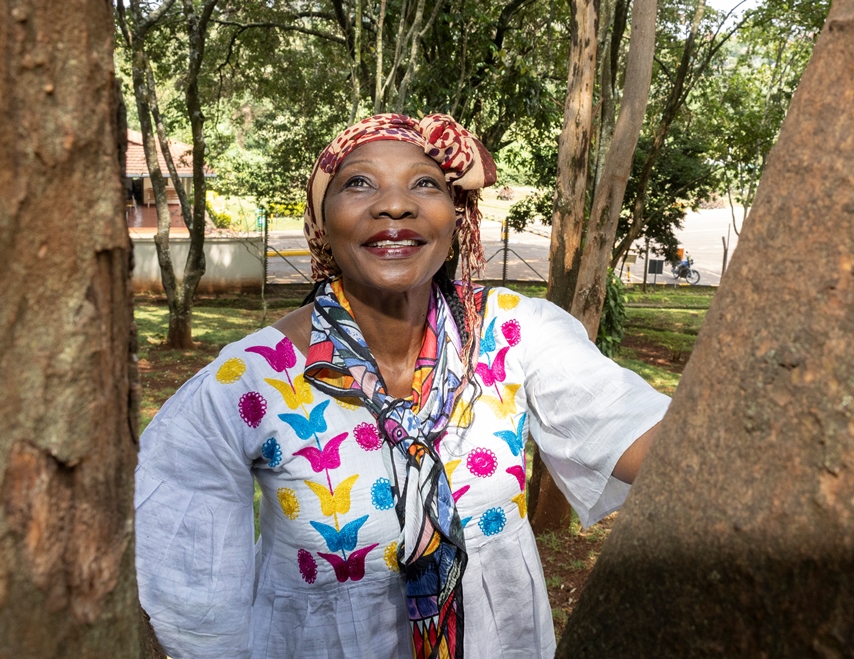Women make up more than half of Cameroon’s 27 million citizens. About 70% of these women live in rural areas. Many of them harvest wild forest products to help sustain their families. However, community rules often work against them. In some areas they can’t own land or inherit it from their husbands. In others, women are prohibited from planting trees on degraded land.
Cecilé Ndjebet knows about the challenges Cameroonian women often face. She grew up in the forest as well. But through the African Women’s Network for Community Management of Forests (REFACOF), which she co-founded in 2009, Cecilé has relentlessly promoted women’s participation in forest governance, as well as equal rights to land tenure and forest resources. With knowledge gained from African Forest Forum, she has worked to inform, train and support women to understand sustainability issues for better management of forests and improved livelihoods.

As a member of the AFF Governing Council and Coordinator of its ‘Women in Forestry Chapter,’ Cecilé has participated in many of the forum’s activities, enhancing her advocacy efforts at national and international levels. The list of events is impressive and include among others: the Community of Practice organised by the Forum to focus on ‘Advancing women in African forestry in the context of climate change’, which was held virtually in July of 2022; the virtual training on ‘gender mainstreaming in the forestry sector,’ which took place the same month; the live webinars on 'National forest governance responses to the Paris Agreement and the contribution of forest resources in building climate resilient communities in Africa', which took place about a year earlier.
She recalls pushing programs for women within the African Forest Forum a decade earlier. “As women, we were very interested in asking for support from AFF. First of all, to help African women get more interested in forestry activities. Because we were already trained that forestry was a male profession, not a woman’s profession. So, we needed to work with AFF to help with seminars, training, meetings, to show that women have a space, and they are key actors in forestry.”
Her vision has resulted in a project by her organisation, Cameroon Ecology, to train women to lead the way in reviving forests across the nation. And she has worked to push her government to commit to restoring 12 million hectares of forest by 2030.
Rose Pelagie Masso, is among the many beneficiaries who, like Cecilé, has benefitted from the knowledge shared by AFF. She works with local women groups to reforest degraded land and mangrove forests, establishing nurseries and other activities. “I accompany the groups of women in generating incomes through agricultural fields, forestry fields and many other related things. AFF has also strengthened our capacity on climate finance and multilateral agreements on the environment. So, I have really benefited a lot from the training organised by AFF,” she says.
Women understand well the use of forests for livelihoods. This has led many, like Cecilé, to take leading roles at African Forest Forum. She explains why; “Meet women, you will gain more. They know the species; they know their uses. They know how to care for it. When women have a tree, they don't see timber. They see the fruit, they see the leaves, they see the bark. They want to have the tree standing there for many years. Because they will not cut it. If you cut it, you stop life. You know that it is in our education, our culture, our way of behaving, our way of life. The African Forest Forum is making a big difference in Cameroon by influencing policy making to support women’s forest rights. It is also empowering female community leaders to fight for forest conservation and their families’ livelihoods. By giving women a voice, they hope to blaze a path through the forests that will lead to a growing future.”

